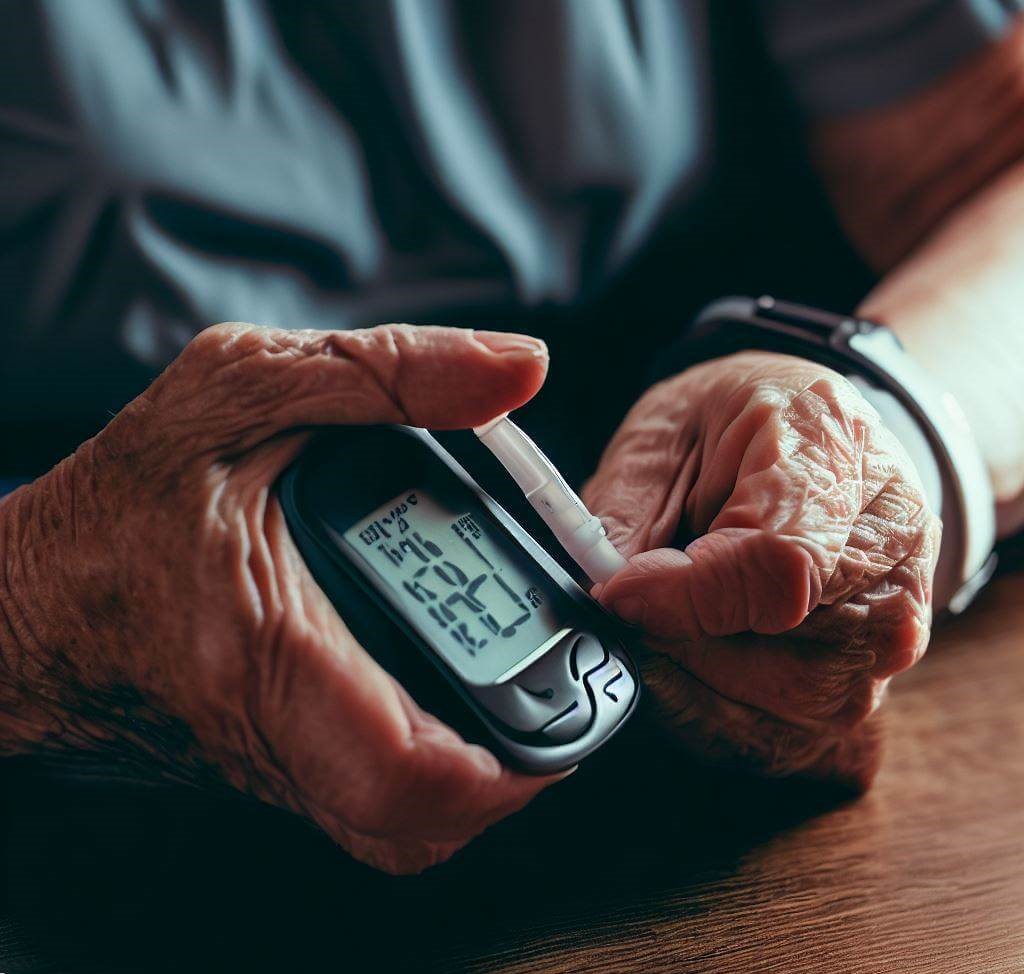The Importance of Diabetes Education for Seniors
As seniors age, managing health becomes a paramount concern, and this is particularly true for those diagnosed with diabetes. As a chronic condition, diabetes requires a clear understanding and effective management to prevent complications. A comprehensive diabetes education is, therefore, crucial for seniors, empowering them to make informed decisions about their health and lead healthier lives.
Understanding Diabetes
Diabetes is a condition where the body either doesn’t make enough insulin or can’t use the insulin it makes effectively, leading to high blood sugar levels. For seniors, understanding the complexities of diabetes, including the different types and their implications, is the first step towards managing the condition effectively.
Impact of Aging on Diabetes Management
With aging, several factors can complicate diabetes management. These include the presence of other health conditions, changes in metabolism, and the body’s reduced ability to metabolize medicine. Understanding these can help seniors anticipate potential challenges and strategize their diabetes management accordingly.
Crucial Components of Diabetes Education
Comprehensive diabetes education covers a wide range of areas, all aimed at enhancing seniors’ ability to manage their condition confidently and independently.
Diabetes Self-Management Education (DSME)
DSME equips seniors with the knowledge and skills needed to manage diabetes effectively. It covers various aspects, including glucose monitoring, how to interpret results, and steps to take based on those results.
Nutritional Counseling
Understanding nutrition is key to managing blood sugar levels. Nutritional counseling can guide seniors on what to eat, portion sizes, meal planning, and understanding food labels.
Physical Activity Recommendations
Exercise plays a significant role in managing diabetes. Seniors need to know the right kind and amount of exercise suitable for their age and physical condition.
Medication Management
Seniors often have multiple medications. Learning how to manage diabetes medication along with others, understanding potential interactions, and remembering medication schedules is essential to prevent complications.

Importance of Nutritional Education in Managing Diabetes
Nutritional education is a cornerstone of diabetes management, especially for seniors. It helps them understand how different foods affect their blood sugar levels and how to make healthier choices that can help manage their condition effectively.
Understanding Carbohydrates
Carbohydrates have a significant impact on blood sugar levels. Seniors with diabetes need to learn about different types of carbohydrates, how they affect blood glucose levels, and how to count them to maintain balance in their meals. They also need to understand the concept of Glycemic Index and Glycemic Load that categorizes foods based on how quickly they raise blood sugar levels.
Portion Control
Portion control is another critical aspect of diabetes management. Eating too much, even of healthy foods, can lead to weight gain and higher blood sugar levels. Diabetes education helps seniors understand the appropriate serving sizes for different foods, enabling them to control their portions effectively.
Making Healthier Choices
It’s not just about what you eat but also about choosing healthier alternatives. Seniors should learn about healthier substitutes for common foods – for example, choosing whole grains instead of refined grains, using healthier cooking methods like grilling or steaming instead of frying, or choosing low-fat dairy products.
Importance of Regular Meals
Skipping meals or having irregular meal patterns can lead to fluctuations in blood sugar levels. Seniors should understand the importance of having regular meals and snacks to keep their blood sugar levels stable.

Role of Physical Activity in Diabetes Management
Physical activity is another critical component of diabetes management. Exercise can help control blood sugar levels, reduce the risk of heart disease, maintain a healthy weight, and improve overall well-being.
Finding the Right Activity
Seniors should engage in physical activities that they enjoy and can safely do. This could be anything from walking or swimming to gentle yoga or tai chi. The key is to find something that they can sustain in the long run.
Safety Precautions
Safety is a crucial aspect when it comes to physical activity for seniors. They should always start any new exercise regime under the guidance of a healthcare provider. It’s also essential to keep their healthcare team informed about their exercise routines, as it may influence their medication or meal plan.
Consistency and Regularity
Consistency and regularity in physical activity can have a significant impact on blood sugar control. Even a short, regular routine is more beneficial than longer, infrequent exercise sessions. Seniors should aim for at least 150 minutes of moderate-intensity activity every week.
Emotional Well-being and Diabetes Management
Managing diabetes is not just about diet and exercise. Emotional well-being also plays a crucial role. Stress, depression, and anxiety can affect blood sugar levels and make diabetes management more challenging.
Stress Management
Stress can raise blood sugar levels and make it harder to manage diabetes. Seniors need to learn effective stress management techniques. This could include relaxation exercises, deep breathing, meditation, or hobbies that help them relax.
Coping with Diabetes Distress
Diabetes distress is a term used to describe the emotional burden of managing diabetes. It’s quite common among people with diabetes, including seniors. Learning about this condition, recognizing the signs, and knowing how to seek help are essential parts of diabetes education.
Importance of Social Support
Having a strong social support network can significantly help seniors manage their diabetes. This could be family, friends, or support groups where they can share their experiences, learn from others, and get the emotional support they need.
In conclusion, empowering seniors through comprehensive diabetes education involves a multifaceted approach that covers not just medical aspects but also nutritional, physical, and emotional aspects. It helps them take charge of their health, live a fulfilling life, and manage their diabetes effectively.
Continual Learning and Adaptation
In managing diabetes, it’s essential to understand that learning doesn’t end with the initial education. As seniors age, their bodies, lifestyle, and health status may change, necessitating adjustments to their diabetes management plan. Continuing to educate themselves about the latest diabetes research and potential changes to their care plan helps seniors stay proactive and responsive in managing their condition. Furthermore, it empowers them to have informed discussions with their healthcare providers and make joint decisions about their care. This active participation enhances their self-management skills and promotes better health outcomes.

The Role of Healthcare Providers in Diabetes Education
Healthcare providers are pivotal in diabetes education for seniors. Their role goes beyond prescribing medication to encompass guidance, advice, and support in managing the disease.
Guidance from Endocrinologists
Endocrinologists are doctors specializing in hormonal conditions like diabetes. They play a crucial role in providing seniors with detailed information about their specific type of diabetes, treatment options, and ways to manage the condition and prevent complications.
Assistance from Diabetes Educators
Diabetes educators or diabetes care and education specialists (DCES) are healthcare professionals who specialize in helping people with diabetes understand their condition better. They provide education on self-monitoring blood glucose, managing diet and exercise, and dealing with the emotional challenges of living with diabetes. They work closely with seniors to create personalized diabetes management plans.
Learning About Diabetes Complications
Understanding potential complications of diabetes is a vital part of diabetes education. It allows seniors to take proactive steps to prevent these complications and know when to seek medical attention.
Eye Complications
Diabetes increases the risk of several eye complications, including diabetic retinopathy, cataracts, and glaucoma. Seniors need to know about the importance of regular eye check-ups, symptoms to watch for, and what each complication means for their vision and overall health.
Heart Disease and Stroke
People with diabetes are more prone to heart disease and stroke. Seniors need to understand this risk, including the reasons behind it, signs and symptoms, and steps for prevention.
Kidney Disease
Diabetes can also affect the kidneys, causing diabetic kidney disease or diabetic nephropathy. Seniors should learn about the symptoms, risk factors, prevention methods, and treatment options related to this condition.
Conclusion
Diabetes education empowers seniors with diabetes to manage their health effectively, prevent complications, and maintain a high quality of life. The comprehensive knowledge about the disease, its management, and potential complications helps them take proactive steps and make informed decisions. While it might seem overwhelming initially, with the right guidance and commitment, diabetes can be managed successfully.
FAQs
- What is the importance of diabetes education for seniors?
Diabetes education is crucial for seniors because it empowers them with the knowledge and skills they need to manage their condition effectively. It also helps prevent complications associated with diabetes. - Who provides diabetes education?
Diabetes education is provided by healthcare professionals, including endocrinologists and diabetes educators. They offer guidance and support in understanding and managing the disease. - What are the potential complications of diabetes?
Diabetes can lead to several complications if not properly managed. These include eye complications (like diabetic retinopathy, cataracts, and glaucoma), heart disease, stroke, and kidney disease. - What is the role of physical activity in managing diabetes?
Physical activity plays a significant role in managing diabetes. It helps regulate blood sugar levels, reduce the risk of heart disease, improve circulation, and boost overall well-being. - What is the impact of aging on diabetes management?
Aging can complicate diabetes management due to factors like the presence of other health conditions, changes in metabolism, and reduced ability to metabolize medicine. Therefore, personalized diabetes management plans are essential for seniors.





